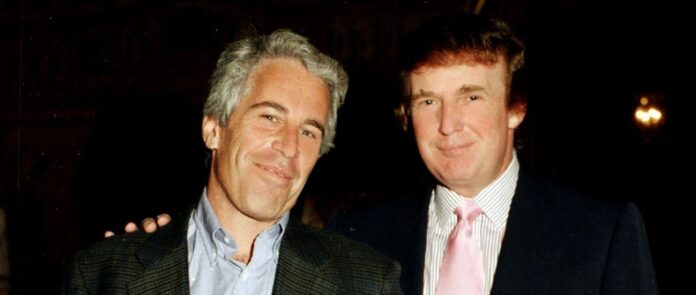Coverage of the Jeffrey Epstein scandal shows that mainstream journalists still have the capacity to latch onto a story and not let go.
They’ve thrown everything they’ve got at this story, and delivered the goods. Every day there’s something Epstein to report about: New reactions, old reactions, new evidence, old evidence, fresh quotes, old quotes.
They’re reaching out to sources, mining the archives, asking everyone what they think.
Print journalists are not letting this story fall off the tops of their front pages no matter what. Cable news anchors are leading their newscasts with it on the hour, one after another.
It’s impressive.
But now that we know that our top journalists can sustain a major story and stoke public outrage when they choose to, the question arises: Why haven’t they done that with other stories whose long-term significance in many ways dwarfs this sordid sex scandal?
OK, yes, I get it: The Epstein scandal represents the first major split between Trump and his base, which until now has been resolutely behind him. That’s new, and therefore news.
The story also has sex.
But most of all, the reason our top journalists are so excited about this story is because, for once, the criticism of Trump is coming from “both sides.”
The leaders of our top newsrooms are pathologically afraid of being accused of partisanship. So only if people on “both sides” agree does the media consider something a real scandal.
That effectively gives the right veto power over what the media cares about. If the right presents a united front, the coverage — even of threats to American democracy, or to the planet — will be listless and sporadic. Which it is.
But I would argue that if you weren’t afraid of accusations of partisanship there are many bigger and more consequential scandals that deserve the all-hands-on-deck, keep-the-story-on-the-front-page treatment Epstein is getting.
The most obvious of those topics is Trump’s aberrant mental state and resulting unfitness for office. He provides fresh evidence nearly every day that he is delusional, irrational, clueless, and pathologically narcissistic.
Journalists should, therefore, be generating major headlines on a daily basis about his confusion and unintelligibility; about his belief in disproven conspiracy theories; about how every accusation is a projection.
But they don’t.
There are other huge stories that they only weigh in on once in a while, when they should be covered essentially nonstop. They include:
- The erosion of democracy and rise of an all-powerful executive branch.
- The enriching of the already obscenely rich and the impoverishing of everyone else.
- The existential threat of climate change.
- The insanity of Trump’s tariff proposals.
- His staggering unpopularity.
- The outrageous citing of antisemitism as an excuse to destroy higher education institutions.
- The inhumane way the government is treating trans people.
- The U.S- sanctioned mass murder of Gazans by Israel.
Yes, that’s a lot. But every one of these storylines deserves the same type of passionate saturation coverage our newsrooms are currently giving to the Epstein story.
That means shaking every tree, calling in favors from sources, delving into the archives, demanding response from people in power, featuring key players, writing explainers, publishing timelines – and prominently publishing incremental developments and putting them in context,
There are lots of ways journalists can keep a story going and foment public outrage. We’re seeing that right now.
But journalists shouldn’t reserve these tactics only for stories that “both sides” agree is a big deal.
In this horrible time, there are plenty of other big-deal stories out there.
